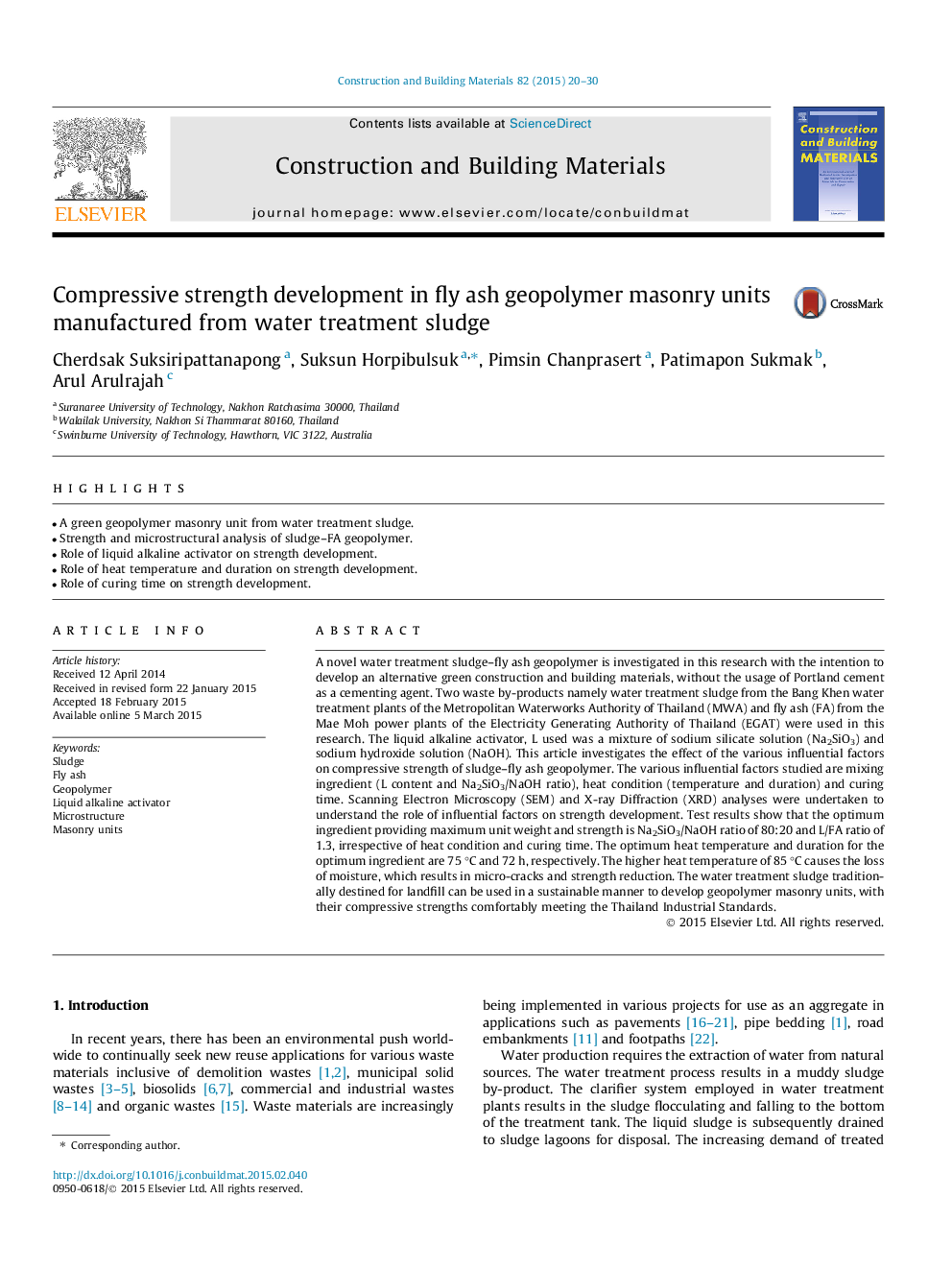| کد مقاله | کد نشریه | سال انتشار | مقاله انگلیسی | نسخه تمام متن |
|---|---|---|---|---|
| 256910 | 503567 | 2015 | 11 صفحه PDF | دانلود رایگان |
• A green geopolymer masonry unit from water treatment sludge.
• Strength and microstructural analysis of sludge–FA geopolymer.
• Role of liquid alkaline activator on strength development.
• Role of heat temperature and duration on strength development.
• Role of curing time on strength development.
A novel water treatment sludge–fly ash geopolymer is investigated in this research with the intention to develop an alternative green construction and building materials, without the usage of Portland cement as a cementing agent. Two waste by-products namely water treatment sludge from the Bang Khen water treatment plants of the Metropolitan Waterworks Authority of Thailand (MWA) and fly ash (FA) from the Mae Moh power plants of the Electricity Generating Authority of Thailand (EGAT) were used in this research. The liquid alkaline activator, L used was a mixture of sodium silicate solution (Na2SiO3) and sodium hydroxide solution (NaOH). This article investigates the effect of the various influential factors on compressive strength of sludge–fly ash geopolymer. The various influential factors studied are mixing ingredient (L content and Na2SiO3/NaOH ratio), heat condition (temperature and duration) and curing time. Scanning Electron Microscopy (SEM) and X-ray Diffraction (XRD) analyses were undertaken to understand the role of influential factors on strength development. Test results show that the optimum ingredient providing maximum unit weight and strength is Na2SiO3/NaOH ratio of 80:20 and L/FA ratio of 1.3, irrespective of heat condition and curing time. The optimum heat temperature and duration for the optimum ingredient are 75 °C and 72 h, respectively. The higher heat temperature of 85 °C causes the loss of moisture, which results in micro-cracks and strength reduction. The water treatment sludge traditionally destined for landfill can be used in a sustainable manner to develop geopolymer masonry units, with their compressive strengths comfortably meeting the Thailand Industrial Standards.
Journal: Construction and Building Materials - Volume 82, 1 May 2015, Pages 20–30
